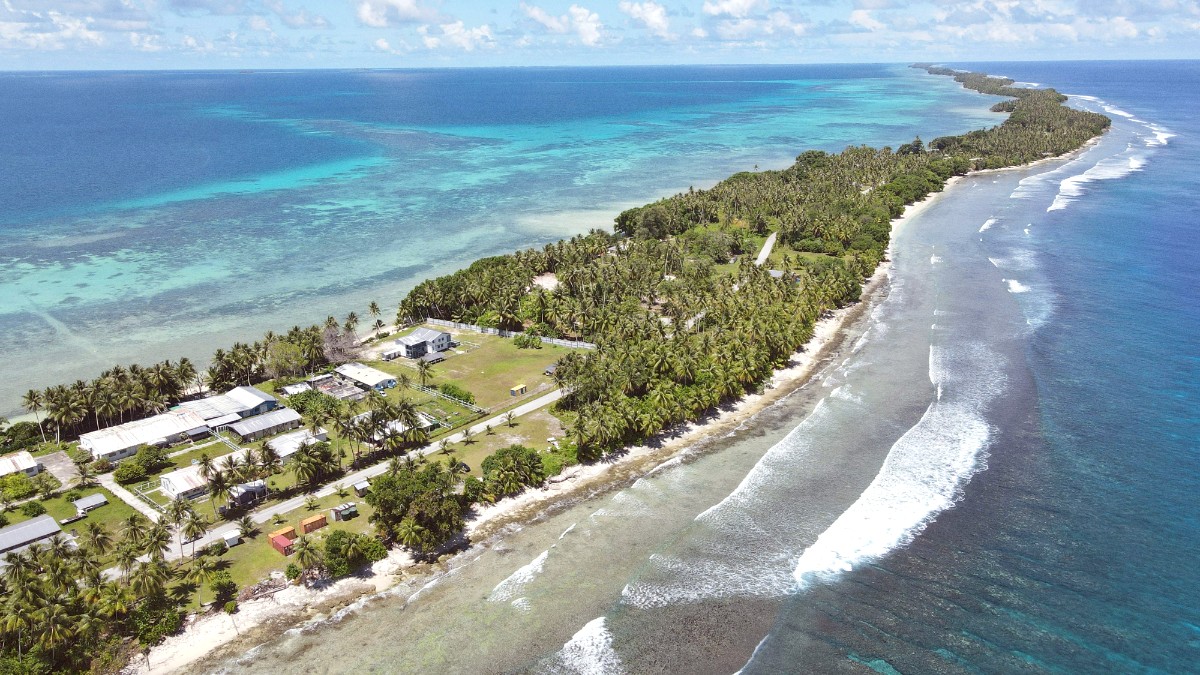
Focus on light, breathable, loose-fitting clothing year-round. Natural fabrics like cotton or linen allow for better air circulation. Synthetics might feel sticky in high humidity. For the wet season (Nov-Apr), quick-drying clothes and a Lightweight rain jacket or Compact umbrella are useful for sudden downpours.
Modesty plays a role in Tuvaluan culture. Dress respectfully, especially in public areas, outside swimming spots, or when visiting churches and community gatherings. Amazon offers a variety of suitable clothing.
Ideal for everyday wear in the warm, humid climate. Easy to slip on and off.
Highly recommended for beach activities and exploring reefs. Protection from sharp coral. (Amazon Link)
Comfortable, breathable walking shoes for longer strolls on flat terrain. (Amazon Link)
Careful organization of your documents before traveling to Tuvalu prevents stress and ensures smooth entry and exit. Keep both physical and digital copies of everything.
Tuvalu operates on 240V, 50Hz, with Type I plugs (Australian/New Zealand style). A Universal travel adapter with Type I compatibility is a must. Most modern chargers are dual voltage. Vodafone Tuvalu is the sole mobile provider; a local SIM card from their office in Funafuti offers reliable connection, though data speeds might differ from home. An affiliate: Airalo.
A Waterproof camera (like a GoPro) or a Waterproof phone case is excellent for marine life and beach activities. Bring extra batteries and memory cards. Power outages are possible, so Portable chargers are a must.
Download Google Maps or Maps.me for Funafuti before arrival. Internet access can be unreliable.
Google Translate with Tuvaluan and English offline packs assists with language barriers. (Amazon Link)
A reliable weather app, tracking tropical storms, helps monitor conditions, especially during wet season. Affiliate: NordVPN or ExpressVPN for secure browsing.
Assemble a comprehensive First aid kit for a tropical island. Include Band-aids, antiseptic wipes, Pain relievers, Anti-diarrhea medication, Motion sickness remedies, antibiotic ointment, and Electrolyte packets. Bring sufficient prescription medications in original packaging, with a doctor's note.
These are crucial for comfort and health. Choose insect repellent with high DEET (25-50%) or picaridin due to dengue fever. Repel 100 is a strong option. Pack high-SPF (30-50+) Broad-spectrum sunscreen, considering reef-safe options. Bring a Wide-brimmed hat and UV-protective sunglasses.
Bringing your own Mask, snorkel, and fins ensures comfort and hygiene. Rental quality varies.
For serious deep-sea fishing, bring your own tackle. Local options for quality gear are limited.
Snorkel gear is better to bring for quality. Motorbikes are readily available for rent on Funafuti. Boats charter with local operators.
Long flights typically involve connections through Fiji. Comfort items like a Neck pillow, Eye mask, and Earplugs contribute to more restful journeys. While Tuvalu boasts a very low crime rate, exercise caution.
A Reusable water bottle is a practice for eco-conscious travel in Tuvalu, which faces plastic waste issues. Refill from large water containers at accommodations or purified sources. Small gifts for hosts are a thoughtful gesture for guesthouse stays or local interactions.
Limited pharmacies; bring enough for your trip.
High-quality options are scarce or expensive.
Brands and specialized products are rare.
Specialized snacks or supplements may be unavailable.
Consider packing cubes for organized luggage. This maximizes space and keeps your items tidy in a limited accommodation environment.
Bring an extra, collapsible bag for souvenirs or increased luggage capacity on your return journey. Nordace offers modern travel bags.